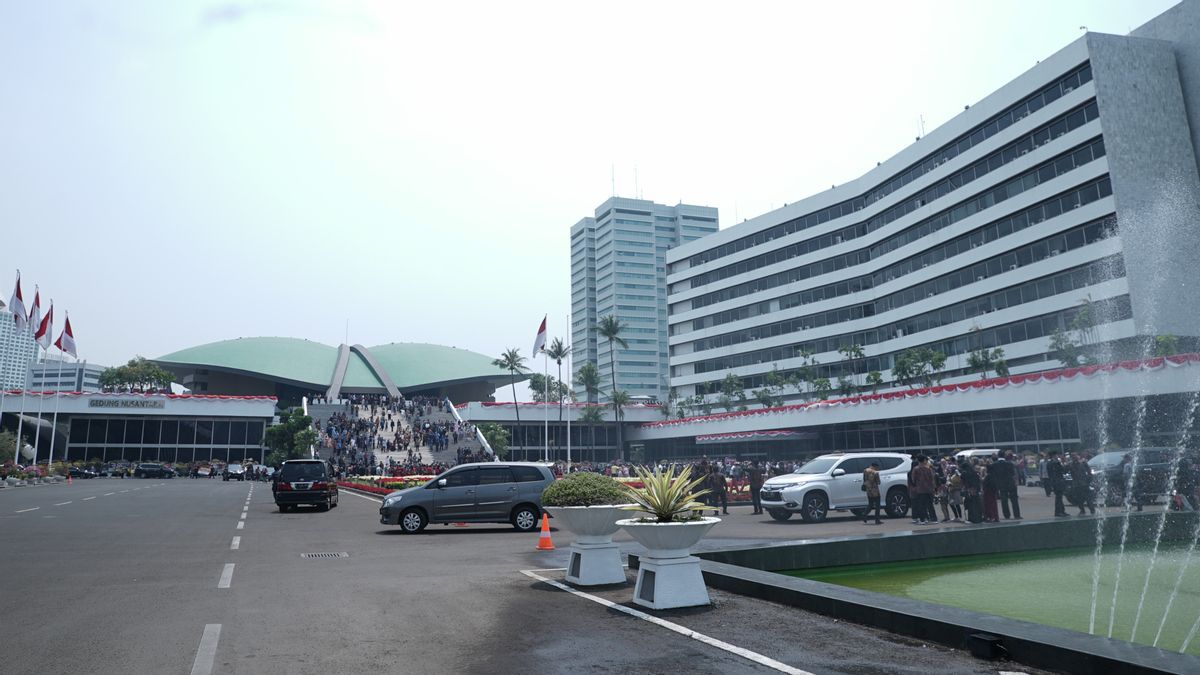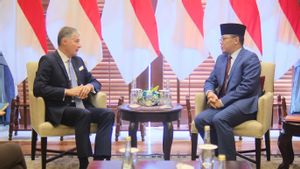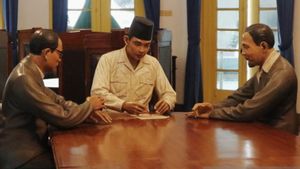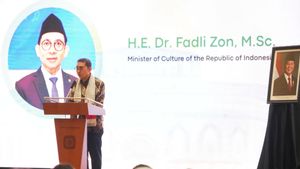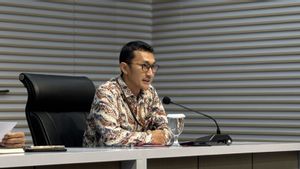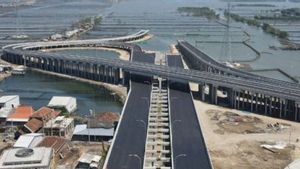JAKARTA - The DPR included the Land Bill in the 2020 Priority National Legislation Program (Prolegnas). In fact, this bill was rejected by the public in the #ReformasiDikorupsi action, and finally the discussion was postponed by the DPR for the 2014-2019 period.
Because it was already included in the 2020 Priority Prolegnas, Researcher of the Indonesian Parliament Concern Community Forum (Formappi) Lucius Karus asked the government and the DPR to discuss this transparently so that there could be no more rejection from the public.
"The discussion process must be transparent. It must be demonstrated by the availability of an academic paper and a draft bill on the DPR's official website. It must also be disseminated to the public," said Lucius, when contacted, in Jakarta, Wednesday, November 20. He added that the academic paper is very important as a reference for the public to conduct analysis related to the bill.
Transparency of the discussion of this bill, he continued, is also important to avoid turmoil in society. Because, not only NGOs have a concern on agrarian issues, indigenous peoples also need to be included in the discussion.
"Just from the deliberation process, there are a number of bills including the land bill that have received rejection from the public. I think it must be due to differences in interests between the DPR or political parties on the one hand and also the public on the other. I think the government and DPR should reopen themselves. crucial issues, "he said.
Commission II of the DPR will hold an internal meeting to discuss the bill which is its responsibility, this Land Bill will be included in their discussion. This internal meeting will be held immediately before the DPR session enters a recess in December. Furthermore, Commission II of the DPR will form a joint working committee with the Ministry of Agrarian Affairs and Spatial Planning during the 2020 session to follow up on this bill.
"At the beginning of the next session, it will be on the 10th (January 2020), we have already formed a committee including the committee for the draft bill that we want to complete in this first year," said Doli, after a meeting with the Ministry of ATR / BPN, in the Commission meeting room. II, Parliament Complex, Senayan, Jakarta, Tuesday, 19 November.
Meanwhile, Minister of Agrarian Affairs and Spatial Planning / National Land Agency (ATR / BPN) Sofyan Djalil said the government and DPR would open discussions to dissect controversial articles which elements of civil society have recently been protesting against.
"No, actually there is no problem for us. Only the controversial one we will discuss. NGOs object, what problems do they object to? We are discussing, there will be more hearings. Hopefully in the first six months of 2020 it will be resolved," he said. Sofyan.
Jokowi had asked to postpone the Land Bill
Previously, the government and Commission II of the DPR for the 2014-2019 period officially postponed and carried over the discussion of the Land Bill at the DPR for the 2019-2024 period. The postponement was carried out based on direct instructions from President Joko Widodo (Jokowi).
The Land Bill is one of the plans for legal regulations that was protested by students who held demonstrations, aka demonstrations on Tuesday, September 24. The action uses the theme #ReformasiDikorupsi.
This bill was protested because several articles were deemed incompatible with the authority of the state and were deemed to only benefit the owners of capital and not in accordance with the spirit of agrarian reform.
There are a number of rubber articles in the Draft Law on Land, including:
1. Victims of evictions who fight against the threat of punishment
Article 91 in the Draft Law on Land Affairs states that anyone who obstructs an officer when evicting can be punished. Here's what it reads:
"Anyone who obstructs a law enforcement officer and / or apparatus carrying out tasks on his / her land parcel as referred to in Article 10 paragraph (4) letter c or a person in charge, shall be punished with imprisonment of up to 2 (two) years and / or a fine of at most. a lot of Rp. 500,000,000 (five hundred million rupiah), "read the article in the accepted draft.
2. Those who commit malicious consensus in land disputes can be convicted
Article 95 can also criminalize agrarian organization activists. Article 95 reads:
"Every person, either alone or jointly who commits and / or assists in carrying out a malicious consensus which results in land disputes or conflicts, shall be punished with imprisonment for a minimum of 5 (five) years and a maximum of 15 (fifteen) years and a maximum fine of Rp. 15,000. .000,000 (fifteen billion rupiah), "read the article written in the draft.
3. The HGU ownership period was extended by 90 years
Another problematic article is article 26. This article provides a Business Use Right (HGU) for up to 90 years. This is how the article sounds:
Article 26
(1) Right to Use Business is granted with a period of:
a. for an individual for a maximum period of 25 (twenty five) years; and
b. for a legal entity no later than 35 (thirty five) years.
(2) In the event that it meets the terms and conditions, the Business Utilization Right as referred to in paragraph (1) can be extended once, namely:
a. for an individual for a maximum period of 25 (twenty five) years; and
b. for a legal entity no later than 35 (thirty five) years.
(3) State-owned enterprises can be given specificity in the application and extension of Land Rights in accordance with the provisions of the statutory regulations.
(4) In certain cases, the Minister may extend the term of the Right to Cultivate for a maximum of 20 (twenty) years.
4. The feel of the Dutch era Domein Verklaring
The Draft Law on Land is also considered to contain the values of the Dutch colonial era Domein Verklaring. Domein Verklaring is a principle whereby land belongs to the state when the owner of the land cannot prove proof of ownership. This nuance appears in Article 36:
Art 36
(1) The right to use as long as it is used as referred to in Article 33 paragraph (1) letter b is given to:
a. Government and Local Government agencies;
b. representatives of foreign countries and international institutions; or
c. religious and social bodies.
(2) The right to use as long as it is used as referred to in paragraph (1) is granted to carry out the main tasks and functions of the right holder in the framework of public services.
(3) The right to use as long as it is used as referred to in paragraph (1) letter b may be released and transferred by means of an exchange or other means in accordance with the provisions of the statutory regulations.
(4) Further provisions regarding Usage Rights with a period of time and Usage Rights during use shall be regulated in a Government Regulation.
The English, Chinese, Japanese, Arabic, and French versions are automatically generated by the AI. So there may still be inaccuracies in translating, please always see Indonesian as our main language. (system supported by DigitalSiber.id)
